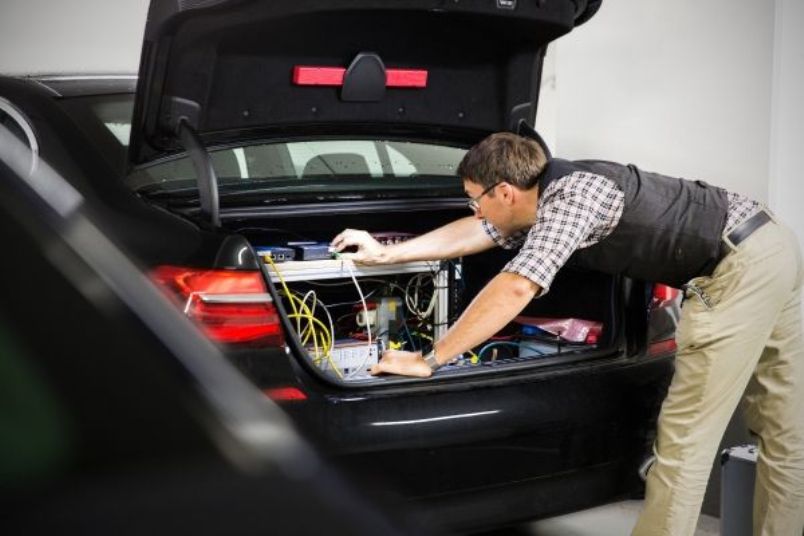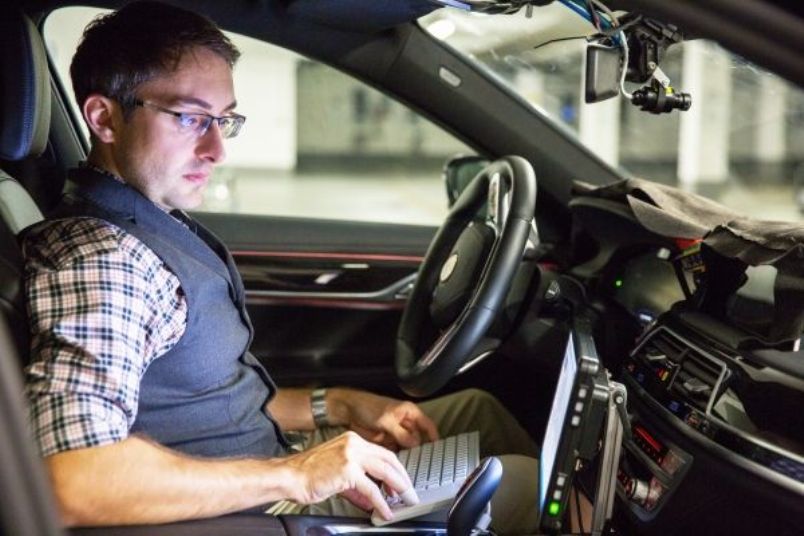
The BMW iNEXT is scheduled for release in 2021 – self-driving, electric and fully connected. A whole range of highly-automated models from all BMW Group brands are set to follow. To achieve this aim, the BMW Group is combining its development expertise in vehicle connectivity and automated driving at a new campus in Unterschleissheim near Munich.
Upon final completion, more than 2,000 employees will work on the next steps towards fully-automated driving, from software development to road testing, at the new location. “The road to fully-automated driving is an opportunity for Germany’s automobile manufacturing base. The decision to develop and road-test these vehicles in the Munich area illustrates how the BMW Group and the whole region can benefit from this shift in the automotive industry,” explains Klaus Fröhlich, member of the Board of Management, responsible for Development at the BMW Group.
Agility as a core competence
From mid-2017, expertise currently distributed across several different locations will be pooled in Unterschleissheim.
“In order to succeed, we are establishing new forms of collaboration under “project i 2.0”, with small teams of specialists for rapid response and collaboration across the company, as well as a high level of individual decision-making authority,” explains Fröhlich. The new work structures will be characterised by agile teams, short distances – and, above all, short decision-making processes. At the new campus, software developers will be able to take the code they have just written across the way for testing in an actual vehicle.
“We are combining the advantages of a start-up, such as flexibility and speed, with those of an established company, like process security and industrialisation expertise,” adds the Development head. “The future development site for autonomous driving will enable us to launch the BMW iNEXT, the first self-driving BMW, onto the market in 2021,” according to Fröhlich. The BMW Group aims to start testing highly-automated vehicles in the urban environment, in Munich, as early as 2017.
“We do our own programming.”
The BMW Group currently employs around 600 people in development of highly-automated driving. The majority are software developers – and their number is increasing. “We still do our own programming here and are responsible for implementing our own ideas,” explains André Müller, a software developer in the autonomous driving team.
“We use the latest technologies, such as ROS (Robot Operating System), and are able to see the results quickly and directly in the vehicle. It is extremely exciting to be working on such an important area for the future.”
André Müller is eager to welcome new colleagues. With the campus in Unterschleissheim, the BMW Group continues to expand its development of highly-automated vehicles and is looking for IT specialists and software developers in the areas of artificial intelligence, machine learning and data analysis.





































